FAQs
Frequently Asked Questions
Got questions? We’ve got answers. Here are some of the most common things patients ask:
What is the best age to visit the orthodontist?
If you want to improve the look and feel of your smile, then any age can be a great age to see the orthodontist. The American Association of Orthodontists recommends that children first visit an orthodontist around the age of seven; however, orthodontic treatment is not exclusive to children and teens, with about one in every five orthodontic patients being over the age of 21. Whether you’re considering treatment for yourself or for a child, any time is a good time to visit the orthodontist.
Do you accept my insurance?
YES, we accept all valid forms of insurance!
What if I don’t have dental insurance?
No problem! We offer flexible payment options to make quality care affordable for everyone.
- If full payment is made at the onset of treatment, we will offer a fee discount. (If you have insurance, we will offer a discount for payment on your portion of the fee that will not be covered by insurance.)
- To fit your individual needs, financial arrangements can be made to extend your payments over a period of months.
What are the different options to straighten my teeth?
Braces are used by your orthodontist to help you improve the look and feel of your smile. There are several different types of braces to choose from, including:
If I have braces, do I still need dental checkups every six months?
Yes! In fact, it’s even more important that patients receiving orthodontic treatment visit their dentist regularly. With braces, food may be caught in places that your toothbrush can’t reach. This causes bacteria to build up that can lead to cavities, gingivitis, and gum disease. Your dentist will work closely with your orthodontist to make sure that your teeth stay clean and healthy while wearing braces.
What's the best way to care for teeth with braces or retainers?
- ALWAYS remember to brush your teeth after every meal and floss at least once a day.
- Make sure to use toothpaste that contains fluoride, and ask your orthodontist or family dentist if you need a fluoride rinse. This will help prevent cavities!
- If you take out your retainer to eat, make sure you brush your teeth, floss, and remember to keep it safe in its container so that it does not get lost or broken.
- Keep your retainer clean, too, by brushing it gently with a toothbrush and toothpaste. You may also soak it in denture cleaner as instructed by your orthodontist. Do not put your retainer in boiling water or in the dishwasher.
- During your treatment, try to avoid foods with a lot of sugar, which increases the amount of bacteria that grows in your mouth, causing more plaque and possibly cavities.
- Avoid sticky and chewy foods (caramel, chewing gum, gummy bears), hard foods (hard candy, nuts, ice cubes), or any foods that could possibly get stuck in your braces (corn on the cob, soft bagels, ribs, taffy, etc.).
- Be sure to schedule your routine checkups with your family dentist. It is recommended that you continue to visit the dentist every six months.
How long does a typical appointment take?
Depending on which type of appointment is needed, a different appointment length will be required. Adjustment appointments, for example, are shorter than the others. When possible, your appointments can be scheduled at times which are more convenient to your busy schedule, after work or after school.
How long will I have braces?
The amount of time spent in braces will vary depending on the individual patient, because every smile responds differently to treatment. Treatment times can take anywhere between six and 30 months, but most standard treatments take about 18 months.
Do braces hurt?
Braces do not often hurt though you may feel a small amount of discomfort for a couple days as your teeth, gums, cheeks, and mouth get used to your new braces.
Do you offer emergency appointments?
True orthodontic emergencies are rare, but when they occur we are available to you. As a general rule, you should call our office when you experience severe pain or have a painful appliance problem you can’t take care of yourself. We’ll be able to schedule an appointment to resolve the problem.
Still have questions? Call our office — we’re happy to help.
